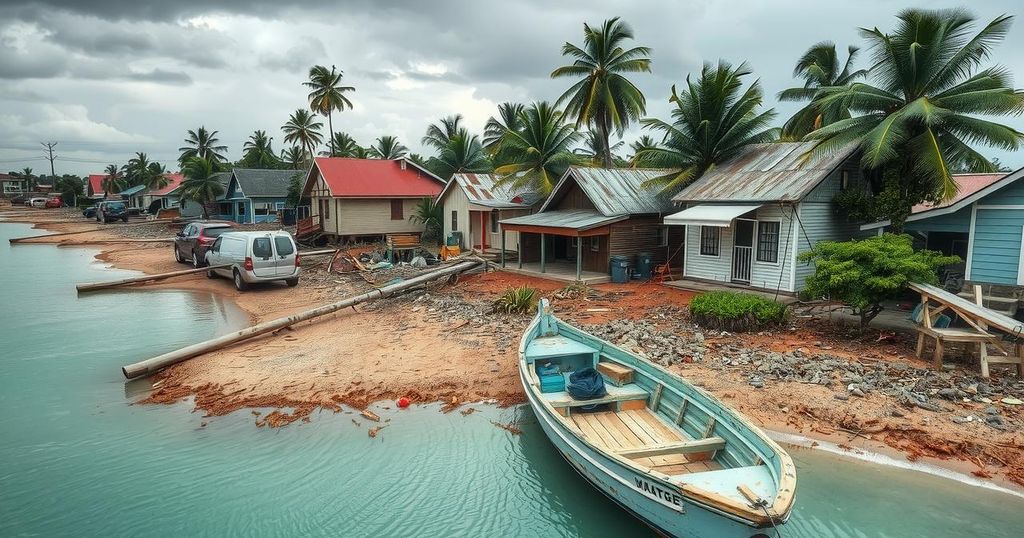Madagascar Assesses Damage from Cyclone Chido as It Moves to Mozambique
Tropical Cyclone Chido has impacted Mayotte and the Comoros, forecasting severe weather conditions that threaten around 2.5 million people in Southern Africa. Authorities in Malawi, Mozambique, and Madagascar are conducting assessments and preparing for the cyclone’s expected landfall on 15 December, as they strive to mitigate damages and ensure community safety.
On 14 December, Tropical Cyclone Chido made its presence felt in Mayotte and the Comoros, bringing with it destructive winds and heavy rainfall that have already generated flooding. This powerful cyclone is predicted to affect approximately 2.5 million people along its trajectory, primarily in Mozambique, Malawi, and Comoros. While reports indicate no significant damage in northern Madagascar, local authorities are currently assessing the cyclone’s impacts. As Chido is anticipated to make landfall in Mozambique on 15 December, regional and national agencies continue their preparedness efforts, disseminating advisories and undertaking damage assessments to mitigate potential harm to numerous communities in the path of this danger.
Tropical Cyclone Chido developed in early December within the southeastern Indian Ocean and rapidly intensified to Category 4 strength before dwindling to Category 3. The cyclone presents significant risks of severe weather, including heavy rains and high winds, which can lead to flooding and mudslides. The affected regions, particularly in Southern Africa, have a history of severe weather events that exacerbate the vulnerabilities of the population, necessitating robust emergency response strategies.
In summary, Tropical Cyclone Chido poses a substantial threat across several Southern African nations, particularly Mozambique, Malawi, and the Comoros, due to expected heavy rainfall and strong winds. Local authorities are actively assessing damages and preparing responses to ensure the safety of affected communities. Continued vigilance and collaboration among regional agencies are crucial as the cyclone progresses, to mitigate risks and provide timely assistance to those in need.
Original Source: allafrica.com




Post Comment